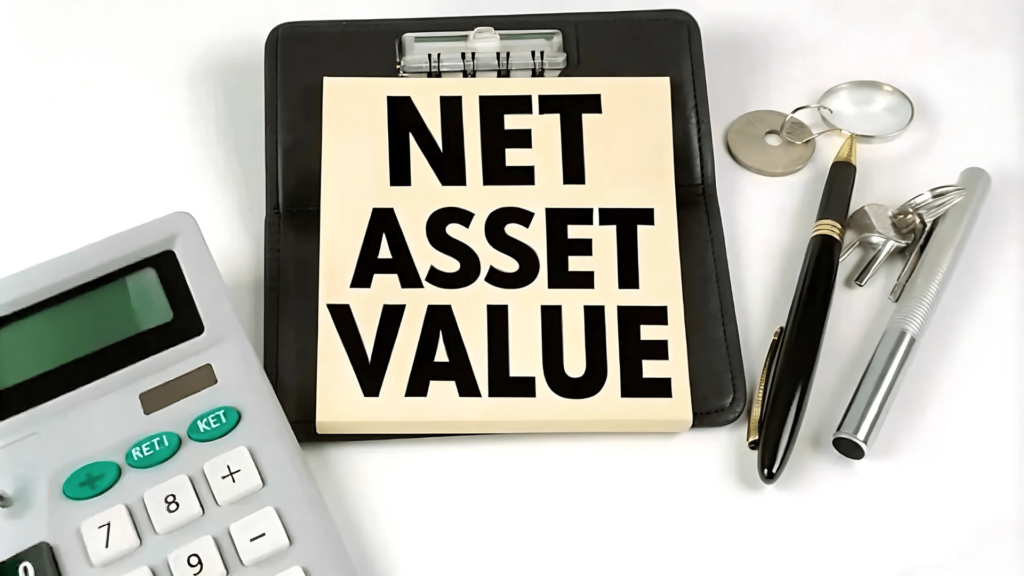Net Asset Value (NAV) is a crucial concept in real estate that helps investors understands the true worth of their investments. It is calculated by subtracting the total liabilities from the total value of assets associated with a property. This metric is important for both new and experienced investors, as it provides insights into the financial health of an investment and aids in making informed decisions. By grasping NAV, you can better evaluate properties, compare investment opportunities, and optimize your overall investment strategy.
Table of Contents
ToggleUnderstanding Net Asset Value
Net Asset Value (NAV) serves as a financial health check for your property, similar to calculating your personal net worth. It reveals the true worth of your real estate investment through a straightforward formula: NAV equals total assets minus total liabilities.
Net Asset Value = Total Assets – Total Liabilities
For instance, if your property is valued at $500,000 and you have an outstanding mortgage of $300,000, your NAV would be $200,000. This figure represents your actual equity in the property, highlighting the powerful insights that can be gained from this simple calculation.
Why Net Asset Value (NAV) Matters?
NAV offers valuable insights for both new and experienced investors by revealing the true worth of a property beyond its purchase price. For new investors, NAV clarifies actual ownership, simplifies property comparisons, and supports sound financial decisions. For seasoned investors, NAV enables effective portfolio tracking, helps identify growth opportunities, and informs strategic buy or sell decisions, all based on an accurate assessment of value.
NAV Essentials: Key Assets and Liabilities
The NAV calculation involves identifying key assets and liabilities to determine the property’s true value. Key assets include the property’s market value, any rental income, cash reserves related to the property, and other associated investments. Primary liabilities include the mortgage balance, property taxes, maintenance costs, management fees, and outstanding payments or obligations. Together, these factors offer a clear picture of the property’s net worth.
Making NAV Work for You
Regular Health Checks
Regular health checks for your investment are important, and NAV calculations serve this purpose well. If you’re an active investor, it’s a good idea to calculate NAV monthly to stay on top of your property’s performance. For those who prefer a buy-and-hold strategy, quarterly checks can help you monitor your investment without being too hands-on. At the very least, you should review your NAV annually to ensure you’re aware of your property’s value and financial health.
Decision-Making Power
Use NAV to answer crucial questions:
- Is this property worth the investment?
- Should I sell now or hold?
- How’s my investment performing?
- Where can I improve value?
Smart Tips for Using NAV
- Stay Current: Real estate markets change – keep your valuations up-to-date
- Be Thorough: Include ALL costs when calculating liabilities
- Track Trends: Monitor your NAV over time to spot patterns
- Compare Wisely: Use NAV to compare similar properties in your market.
Pro Tips for NAV Success
- Use Current Data: Always work with the most recent market values
- Be Conservative: Better to underestimate than overestimate
- Document Everything: Keep detailed records of all calculations
- Seek Expert Input: When in doubt, consult professionals
The Bottom Line
NAV isn’t just another real estate acronym to memorize – it’s your secret weapon for making smarter investment decisions. Whether you’re just starting out or managing a portfolio of properties, understanding and regularly calculating NAV helps you:
- Make informed investment choices
- Track your property’s true value
- Know exactly where you stand financially
- Plan your real estate strategy with confidence
Remember: In real estate, knowledge is power, and NAV gives you exactly that – clear, actionable knowledge about your investment’s true worth. Start using NAV today, and watch how it transforms your approach to real estate investing!
Quick Tip: Keep this guide handy and make NAV calculations a regular part of your investment routine.
